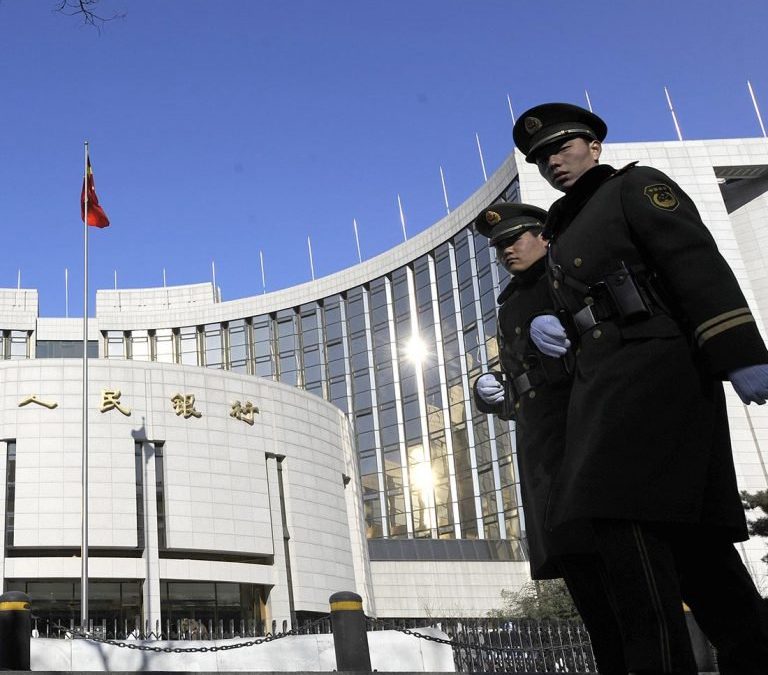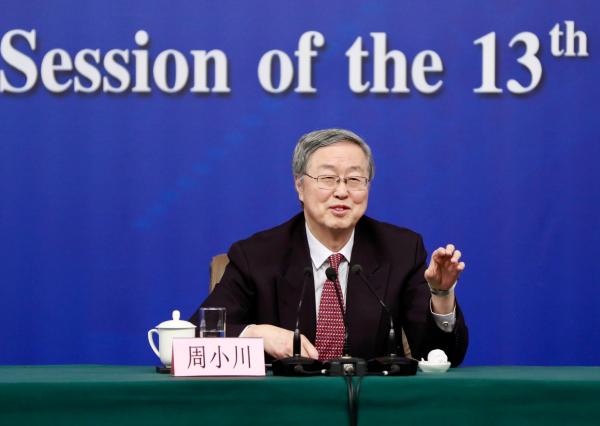This week the People’s Bank of China (PBOC) governor, Zhou Xiaochuan, spoke about both public and privately issued cryptocurrencies. Zhou details that the central bank dislikes “speculative cryptocurrency products” and the bank does not officially recognize digital currencies like bitcoin. Further Zhou explains the bank is monitoring projects like bitcoin and initial coin offerings (ICO), and aims to ramp up regulatory actions.
Also read: Wirex Launching Bitcoin Debit Cards in Europe
PBOC Governor: We Don’t Like Cryptos That Give the Illusion of Getting Rich Overnight
 The PBOC has had an interesting relationship with emerging cryptocurrencies and token sales taking place within its borders. At one time, a vast majority of BTC trade volumes and transactions stemmed from China. However, a lot has changed since the beginning of 2017 as China’s central bank has banned crypto-trading platforms domestically and has stopped ICOs from taking place within the country. This week during a press conference held for the National People’s Congress, the PBOC governor Zhou had a lot to say about public blockchain projects, and the cryptocurrencies tethered to these networks.
The PBOC has had an interesting relationship with emerging cryptocurrencies and token sales taking place within its borders. At one time, a vast majority of BTC trade volumes and transactions stemmed from China. However, a lot has changed since the beginning of 2017 as China’s central bank has banned crypto-trading platforms domestically and has stopped ICOs from taking place within the country. This week during a press conference held for the National People’s Congress, the PBOC governor Zhou had a lot to say about public blockchain projects, and the cryptocurrencies tethered to these networks.
“Lots of cryptocurrencies have seen explosive growth which can bring significant negative impact on consumers and retail investors,” Zhou explains to the press.
We don’t like cryptocurrency products that make huge opportunity for speculation that gives people the illusion of getting rich overnight.
Zhou Explains Cryptocurrencies Are Technically Inevitable but Need Improvements
Zhou does say that digital currencies are technically inevitable, but he believes cryptocurrencies have veered off from the original goals of aiming to improve monetary convenience and cutting medium of exchange costs. Zhou thinks a lot of attention is now based on “speculation” and get rich quick schemes. Another area that needs to be attended to in Zhuo’s opinion is privacy and security issues tied to these payment rails. Zhou states that cryptocurrency projects should promote:
Convenience, rapidity and low cost in a retail payment system while taking into account security and protection of privacy.
Is the Governor Possibly Hinting at a PBOC-Issued Cryptocurrency?
Local news outlets and those who attended the National People’s Congress speech felt that Zhou was referring to a nation-state issued cryptocurrency product. Zhou’s statements reveal that blockchain and digital currency solutions will continue to trend, but existing technical problems need to be fixed. Moreover, Zhou hopes that public officials and Chinese agencies will partner together for further research and development.
“The emphasis should be to serve the real economy — [Cryptocurrencies] should not conflict with the current financial order,” the PBOC governor emphasizes.
The very same day the founder of the exchange Okcoin, Xu Kexing, made a statement over the social media application Wechat that his company was willing to help his country. The regional publication Sohu reports that Xu detailed to an employee that “[Okcoin] will be ready to donate to the country at any time in the future.”
What do you think about the PBOC governor’s statements? Do you think China is in the midst of creating its own cryptocurrency? Let us know in the comments below.
Images via 8BTC, the PBOC, and the Financial Times.
At news.Bitcoin.com all comments containing links are automatically held up for moderation in the Disqus system. That means an editor has to take a look at the comment to approve it. This is due to the many, repetitive, spam and scam links people post under our articles. We do not censor any comment content based on politics or personal opinions. So, please be patient. Your comment will be published.
The post China’s PBOC Governor Speaks Against Speculative Cryptocurrencies appeared first on Bitcoin News.















